Use and influence of science
- Free Plan
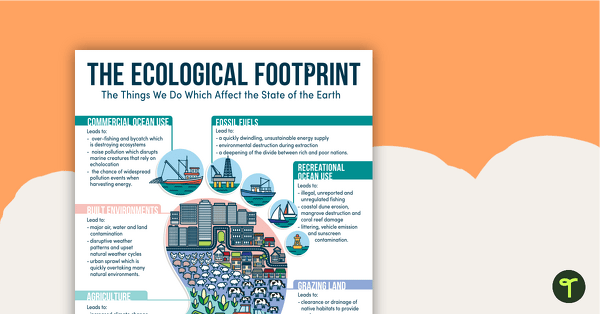
My Ecological Footprint - Reference Sheet
Teach your students about the things we do that affect the Earth with an ecological footprint reference sheet.
- Plus Plan
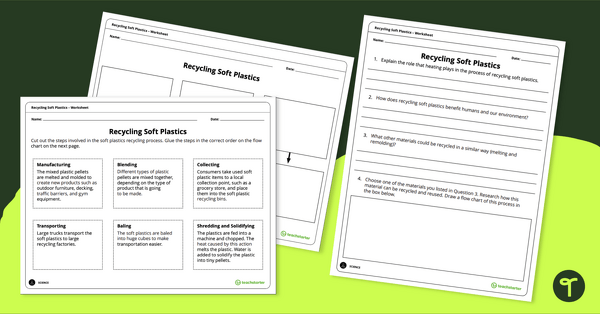
How is Plastic Recycled? – Recycling Worksheets
Explore the process of recycling plastic with a printable recycling worksheet.
- Plus Plan

Natural and Processed Materials PowerPoint
A teaching presentation comparing natural and processed materials and how humans make scientific comparisons.
- Plus Plan
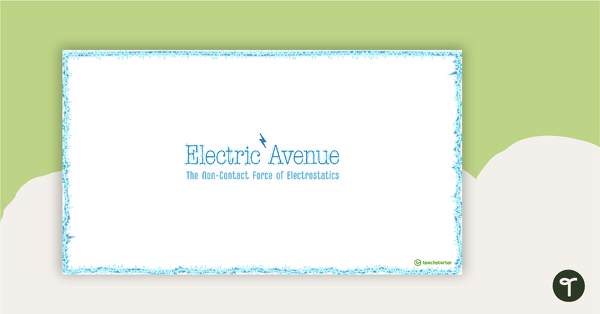
Electric Avenue - Understanding the Non-contact Force of Electrostatics PowerPoint
A teaching presentation introducing the students to the non-contact force of electrostatics.
- Plus Plan
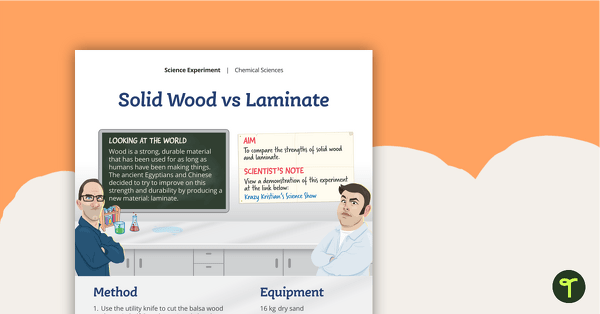
Science Experiment - Solid Wood vs Laminate
A science experiment which investigates the strengths of solid wood and laminate.
- Plus Plan
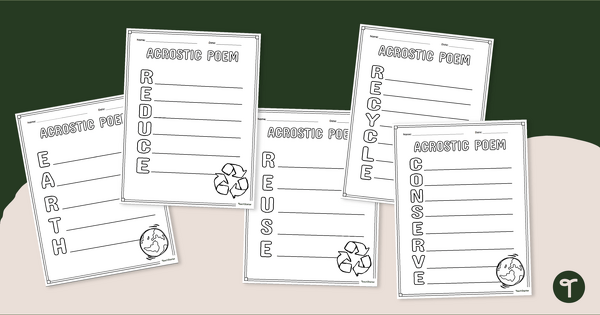
Earth Day - Acrostic Poem Template Pack
An acrostic poem template to use in the classroom to celebrate Earth Day and National Poetry Month.
- Plus Plan
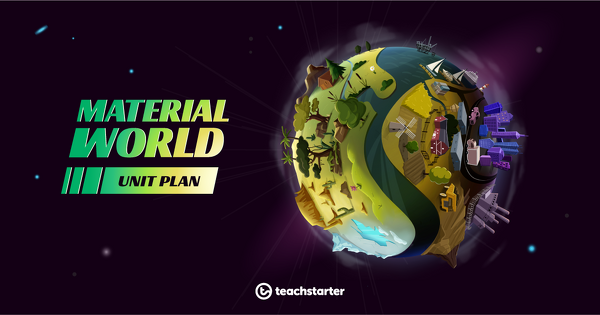
Material World Unit Plan
This Chemical Sciences unit investigates natural and processed materials. Demonstrations and experimental procedures are explored with particular attention given to the scientific method.
- Plus Plan
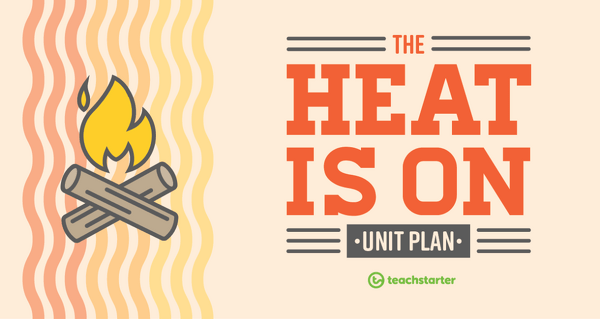
The Heat is On Unit Plan
This Physical Sciences unit addresses the concept of heat energy, including heat sources, heat transfer, thermal conductors and thermal insulators.
- Plus Plan

Changing States Unit Plan
This Chemical Sciences unit addresses how changes in state from solid to liquid and liquid to solid can be caused by adding or removing heat.
- Plus Plan

Working Scientifically Knowledge Check
An assessment task in which students will demonstrate their knowledge and understanding of how to work scientifically.
- Plus Plan

And Further On - Research Into the Environmental Impact of Certain Materials
A 60 minute lesson in which students will be introduced to a research task for them to undertake about a material of their choosing.
- Plus Plan

Science Experiment - Suck It Up!
A 60 minute lesson in which students will investigate materials and their absorptive properties through a scientific investigation.
- Plus Plan
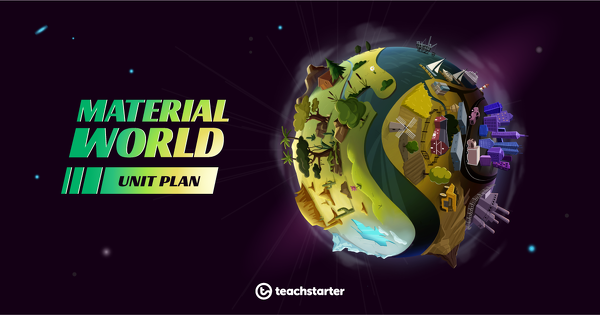
What's the Use? - Developing a Hypothesis to Investigate
A 60 minute lesson in which students will learn how to develop an effective hypothesis for scientific investigations.
- Plus Plan

Freedom of Choice - Developing Scientific Lines of Questioning
A 60 minute lesson in which students will learn how to develop scientific lines of questioning to initiate a scientific investigation.
- Plus Plan

Fake Plastic Trees - A Demonstration Comparing Properties of Natural and Processed Materials
A 60 minute lesson in which students will compare the properties of natural and processed materials through a demonstration.
- Plus Plan

Plastic and Concrete - How Do People Use Processed Materials?
A 60 minute lesson in which students will investigate the ways humans produce and use processed materials.
- Plus Plan

Natural Science - How Do People Use Natural Materials?
A 60 minute lesson in which students will investigate the use of natural materials by humans throughout history.
- Plus Plan

Living in the Material World - Examining Natural and Processed Materials
A 60 minute lesson in which students will examine and understand the differences between natural and processed materials and their uses.
- Plus Plan

Recycling Case Study – Soft Plastics
A 60-minute lesson in which students will explore how changes from solid to liquid and liquid to solid can help in the process of recycling plastic.
- Plus Plan

Adding Heat
A 60-minute lesson in which students will investigate what happens when heat is applied to a range of solids.
- Plus Plan
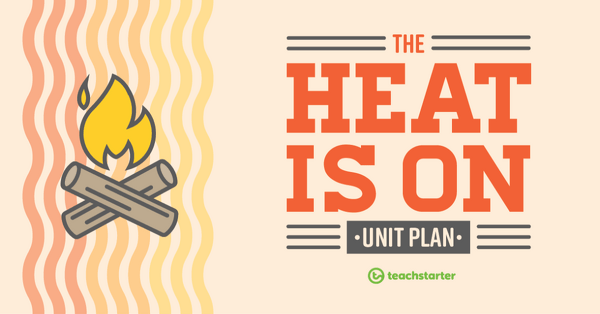
Thermal Insulators - Keeping Out the Heat
A 60 minute lesson in which students will investigate which materials are the best thermal insulators.
- Plus Plan
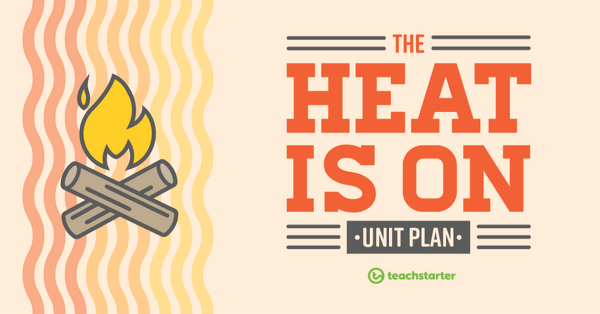
Thermal Conductors - Feel the Heat
A 60 minute lesson in which students will investigate which materials are the best thermal conductors.